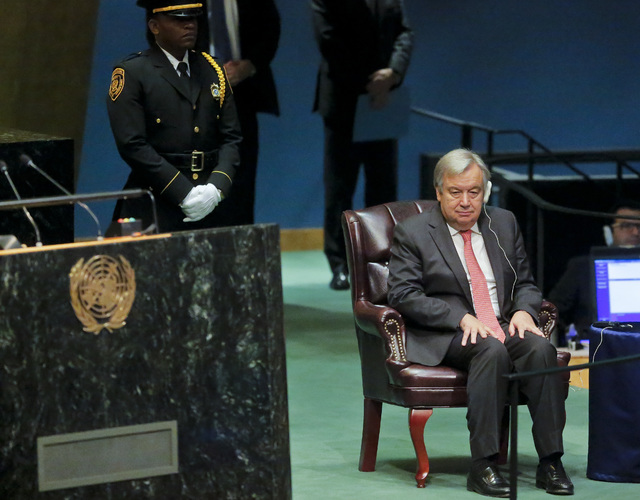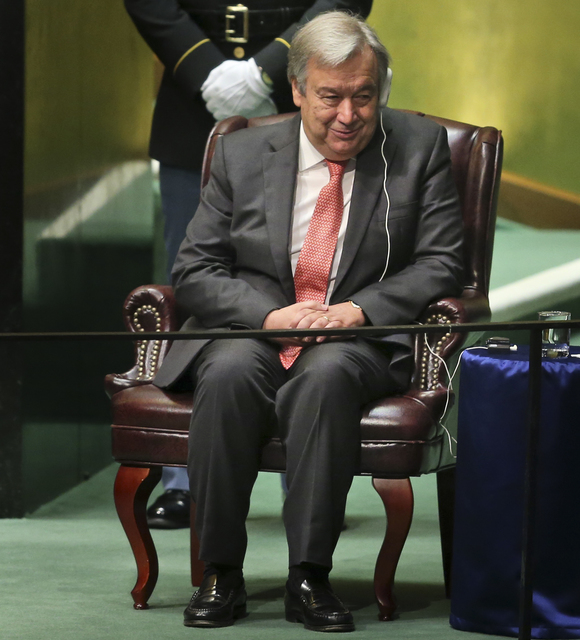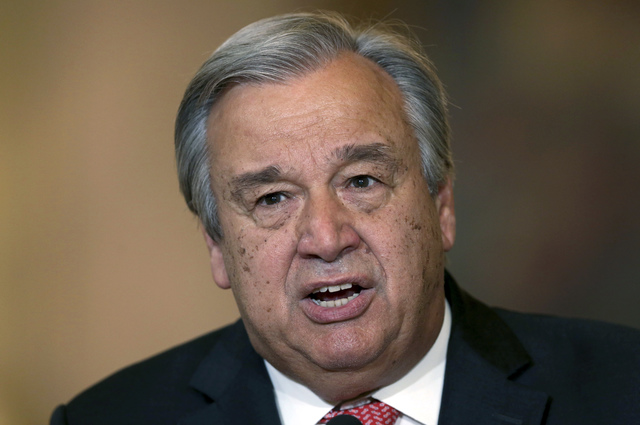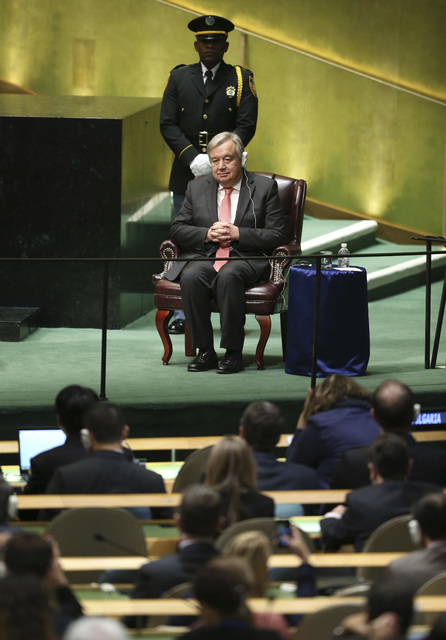UNITED NATIONS — The U.N. General Assembly elected Antonio Guterres on Thursday as the next secretary-general of the United Nations, a post he pledged to use to be “a bridge-builder” and to promote a new “diplomacy for peace.” ADVERTISING UNITED
UNITED NATIONS — The U.N. General Assembly elected Antonio Guterres on Thursday as the next secretary-general of the United Nations, a post he pledged to use to be “a bridge-builder” and to promote a new “diplomacy for peace.”
The 193 U.N. member states elected Guterres by acclamation, following the Security Council’s nomination of the 67-year-old former Portuguese prime minister and U.N. refugee chief by acclamation last week.
Guterres will take over as U.N. chief on Jan. 1 when Secretary-General Ban Ki-moon’s second five-year term ends. He will be the ninth secretary-general in the organization’s 71-year history.
Assembly President Peter Thompson introduced the resolution to elect Gutteres, said members wanted it adopted by acclamation, and banged his gavel in approval as diplomats broke into applause.
Guterres “embodies the highest standards of competence, integrity and leadership,” Thompson said.
In Washington, President Barack Obama congratulated Guterres on his election.
“Mr. Guterres has the character, vision, and skills needed to lead the United Nations at this critical moment and to reform its organizations and operations to better meet these unprecedented challenges,” Obama said in statement.
Guterres, who was High Commissioner for Refugees from 2005-2015, was nominated by the Security Council last week after its sixth informal poll. He topped all six polls, which included a total of 13 candidates — seven women and six men.
Guterres’ selection disappointed many who had campaigned for the first woman or the first representative from an Eastern European country to lead the world body, but diplomats stressed they were voting for the best candidate regardless of other criteria.
Secretary-General Ban, recalling Guterres’ decade as the U.N.’s refugee chief, told the assembly that he is “best known where it counts most, on the front lines of armed conflict and humanitarian suffering.”
In addition to “deep and solid political experience” including two terms as Portugal’s prime minister, Ban said, “his political instincts are those of the United Nations — cooperation for the common good and shared responsibility for people and the planet.”
Guterres said he is fully aware of the challenges the United Nations faces and the limitations surrounding the secretary-general.
“The dramatic problems of today’s complex world can only inspire a humble approach, one in which the secretary-general alone neither has all the answers nor seeks to impose his views, one in which the secretary-general makes his good offices available working as a convener, a mediator a bridge-builder and an honest broker to help find solutions that benefit everyone involved,” he said.
Guterres stressed that he would do his best “to serve the cause of peace” and he urged all countries — a significant number on opposite sides of conflicts including in Syria — to join together in promoting peace.
He said he will promote a new “diplomacy for peace” to press for dialogue to settle disputes.
“We must make sure that we are able to break this alliance between all those terrorist groups, or violent extremists on one side, and the expressions of populism and xenophobia on the other side, Guterres said. “These two reinforce each other, and we must be able to fight both of them with determination.”
———
Associated Press writer Edith M. Lederer contributed to this report from the United Nations.






